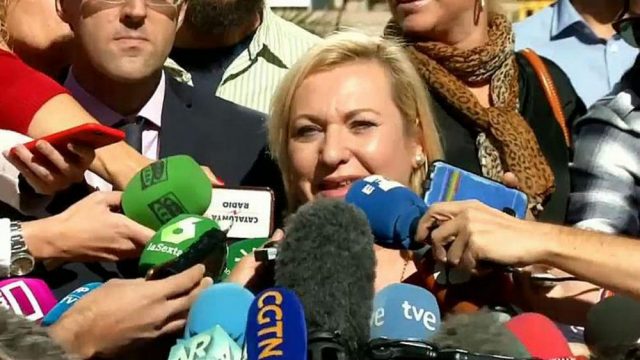
A woman recognised by a Spanish court as one of the Franco dictatorship’s “stolen babies” has found her biological family thanks to DNA testing done in the United States, she announced on Thursday.
Franco came to power in 1939, after defeating the Republican left-wing party in the Spanish civil war. During his regime, he tried to purge Spain from Marxist influence, which explains how the practice of taking babies away from left-wing families was born. Many of these newborns were given to couples who were part of the regime, while other babies were given to supporters of Franco’s ideology.
In the 1950s, the system was extended to poor families or couples seen as “unfit” to raise a child, as it was at odds with the Catholic and nationalist ideology of the regime.
Ten years later, the business side of the programme gained momentum after those working the system realised how lucrative the scheme had become.
The Spanish NGO SOS bebes robados (stolen babies) estimates there are more than 300,000 remaining cases of “stolen babies” in Spain.
Finding the last piece of a puzzle
Fifty-year-old Ines Madrigal told a press conference she was able to find a second cousin through the US DNA database. The cousin then told her that her biological siblings were also looking for her.
Madrigal said it was a “triumph” to have recently found her “real family” a few days after finishing the DNA testing.
“For the first time, I have completed the puzzle that is my life,” she said
Madrigal said she also learned that her biological mother passed away at the age of 73 in 2013.
Last year, a Spanish court convicted an 86-year-old gynaecologist for abducting Madrigal and giving her to another woman in 1969. But he was acquitted because the court decided Madrigal had waited too long to file a complaint.
Activists say hundreds of similar cases have never come to court in Spain because of a lack of evidence or because the time limit to file a charge has passed.
The quest for truth
Madrigal isn’t the only “stolen baby” who has used international DNA databases as a last resource to find her biological family.
Spain’s DNA database is very small compared to other international databases, Enrique Vila, a 54-year-old doctor who has been looking for his biological mother for 32 years, told Euronews.
The DNA databases in the United States have millions of registries that analyse the chromosomes with the end of reuniting relatives or studying genetic diseases, he added.
“There are millions of people who have done the DNA testing and among them, we can find a distant cousin that can lead to finding closer family members,” said Vila, adding that everyone should do it because ‘it can help out others”.







